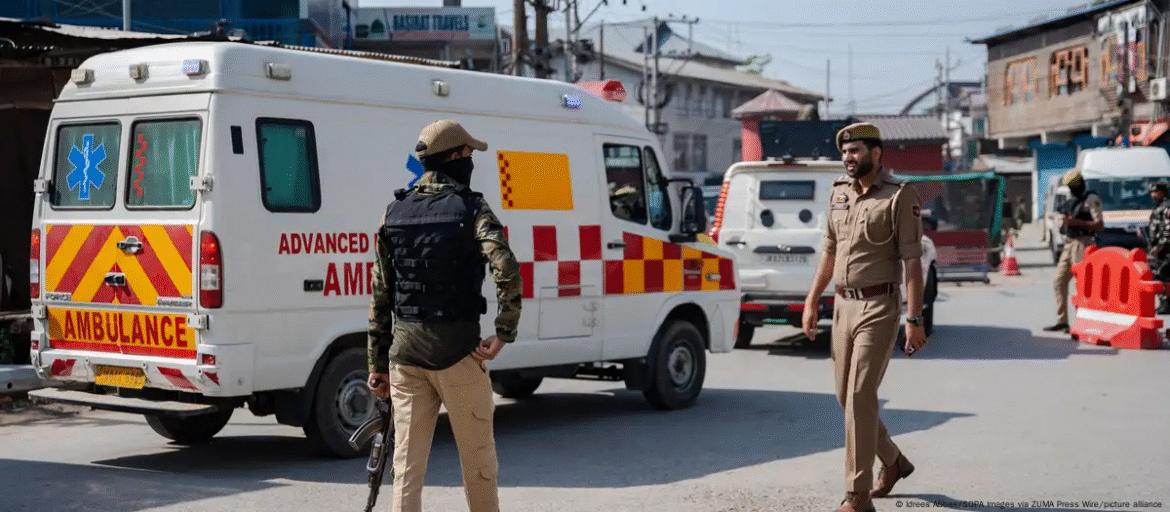AI Generated Summary
- The suspension of the Indus Waters Treaty, in particular, is seen as a major diplomatic lever and a sign that India is willing to use every tool at its disposal to pressure Islamabad.
- In the wake of the deadliest attack on civilians in Kashmir in nearly two decades, which left 26 people dead, India has launched a series of sweeping retaliatory measures against Pakistan.
- In an emergency meeting of the Cabinet Committee on Security, chaired by Prime Minister Narendra Modi—who cut short an overseas trip to return home—India resolved to take unprecedented steps against Pakistan, citing “cross-border linkages” to the attack.
In the wake of the deadliest attack on civilians in Kashmir in nearly two decades, which left 26 people dead, India has launched a series of sweeping retaliatory measures against Pakistan. The attack, which targeted tourists in Pahalgam, a scenic destination in Jammu and Kashmir, has sent shockwaves through the nation and reignited tensions between the two nuclear-armed neighbors.
The Attack
On Tuesday afternoon, heavily armed militants opened fire indiscriminately on tourists at Baisaran meadow, a popular spot near Pahalgam, killing 25 Indian nationals and one Nepali citizen. The Resistance Front, a shadow group linked to the banned Pakistan-based Lashkar-e-Taiba, claimed responsibility for the massacre. Survivors described scenes of chaos as gunfire erupted, with many fleeing for their lives.
India’s Retaliatory Measures
In an emergency meeting of the Cabinet Committee on Security, chaired by Prime Minister Narendra Modi—who cut short an overseas trip to return home—India resolved to take unprecedented steps against Pakistan, citing “cross-border linkages” to the attack.
MEA briefs media following meeting of Cabinet Committee on Security
— DD News (@DDNewslive) April 23, 2025
Watch LIVE: https://t.co/c6K3sn43Vl@MEAIndia #PahalgamTerroristAttack pic.twitter.com/Xf5gX6FFZA
India’s response includes:
- Suspension of the Indus Waters Treaty: India announced it would suspend the 1960 Indus Waters Treaty, a cornerstone of bilateral relations that governs the sharing of river waters crucial to Pakistan’s agriculture and economy. This move is intended to pressure Pakistan to cease its alleged support for cross-border terrorism.
- Closure of the Attari-Wagah Border: The main land crossing between India and Pakistan at Attari has been shut, halting all movement of people and goods. Those who have already crossed with valid documents are required to return by May 1, 2025.
- Diplomatic Downgrades: India has ordered the expulsion of Pakistani military advisors from its mission in New Delhi and will withdraw its own defense, naval, and air advisors from Islamabad. The overall strength of both countries’ high commissions will be reduced.
- Visa Restrictions: Pakistani nationals are now barred from entering India under the SAARC Visa Exemption Scheme. Those already in India on such visas have been given 48 hours to leave.
- Security Crackdown: Security forces have launched a massive manhunt for the attackers, releasing sketches of suspects and increasing patrols and checkpoints throughout Kashmir.
Political and Diplomatic Fallout
Indian leaders have vowed that those responsible—and their sponsors—will face justice. Defence Minister Rajnath Singh declared, “We will not only pursue those responsible for this act but also those who, from behind the scenes, have plotted to execute such deeds on Indian soil”.
Pakistan has denied any involvement, with its Defence Minister alleging that India is using the incident as a pretext to withdraw from the water treaty. Pakistan’s National Security Committee is set to meet to discuss its response, as regional tensions escalate.
Wider Implications
Analysts warn that the Indian government’s actions mark a significant escalation and could have far-reaching consequences for regional stability. The suspension of the Indus Waters Treaty, in particular, is seen as a major diplomatic lever and a sign that India is willing to use every tool at its disposal to pressure Islamabad.
Meanwhile, security operations continue in Kashmir, with authorities pledging to bring the perpetrators to justice and prevent further attacks.




